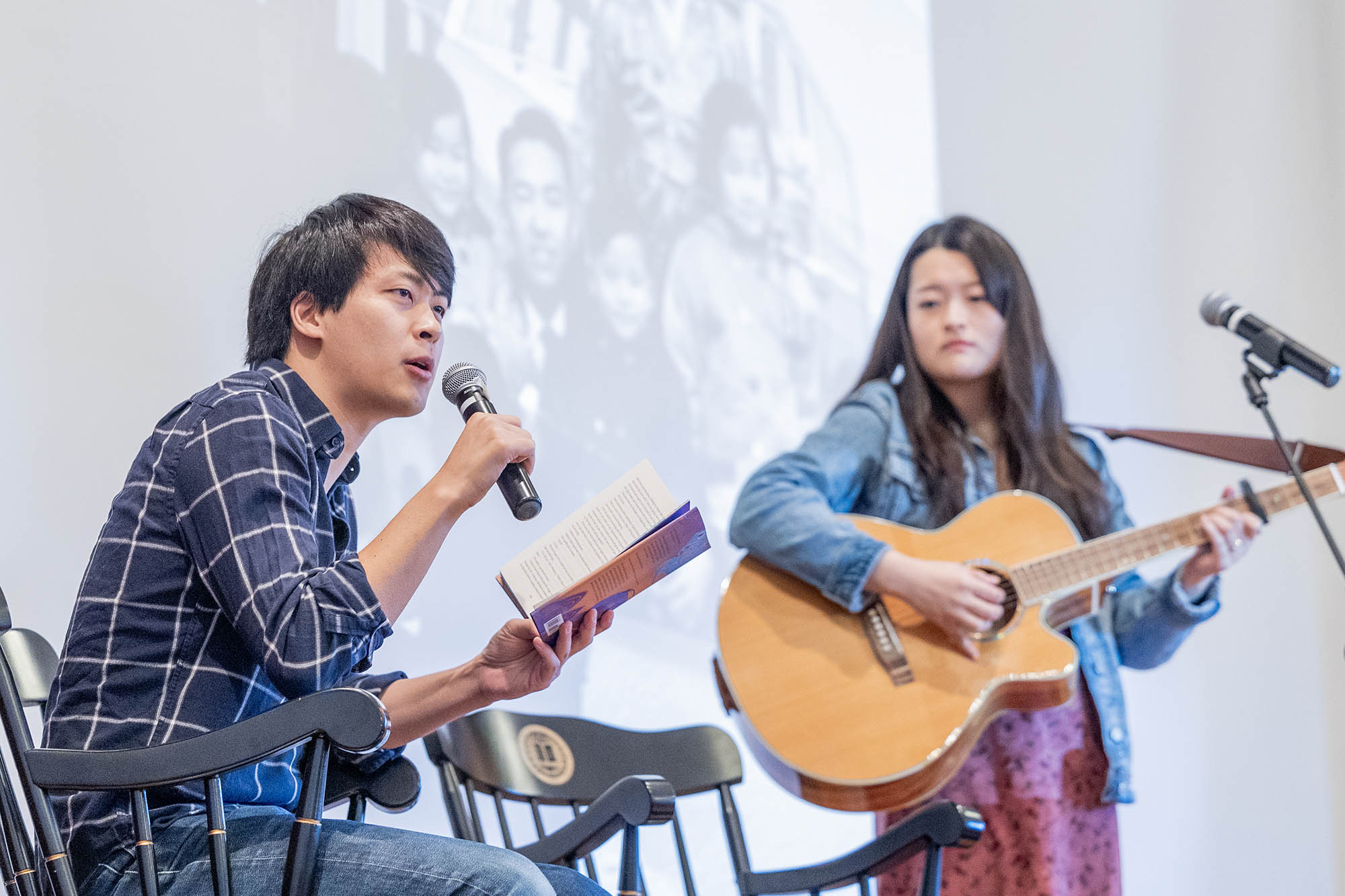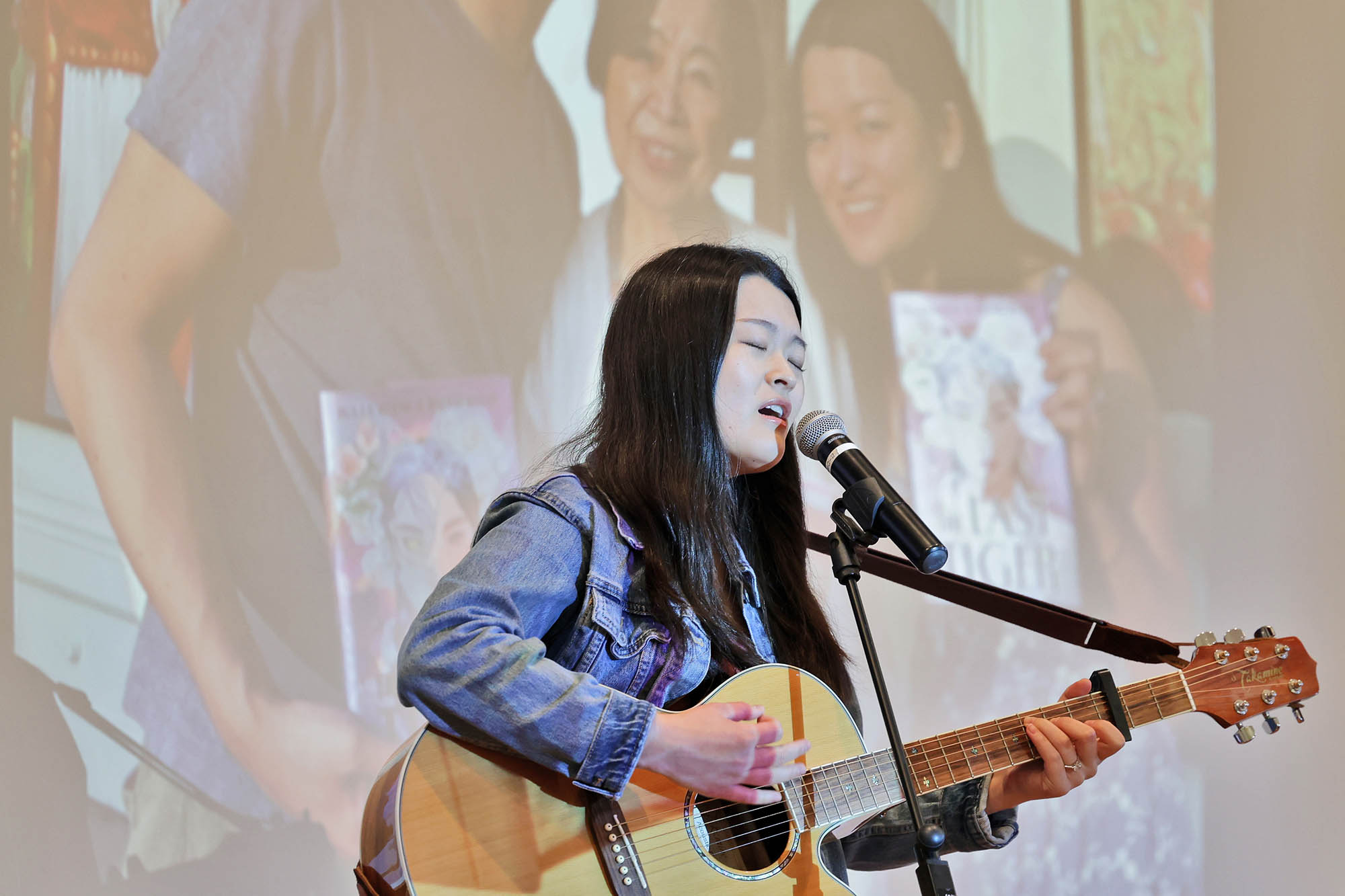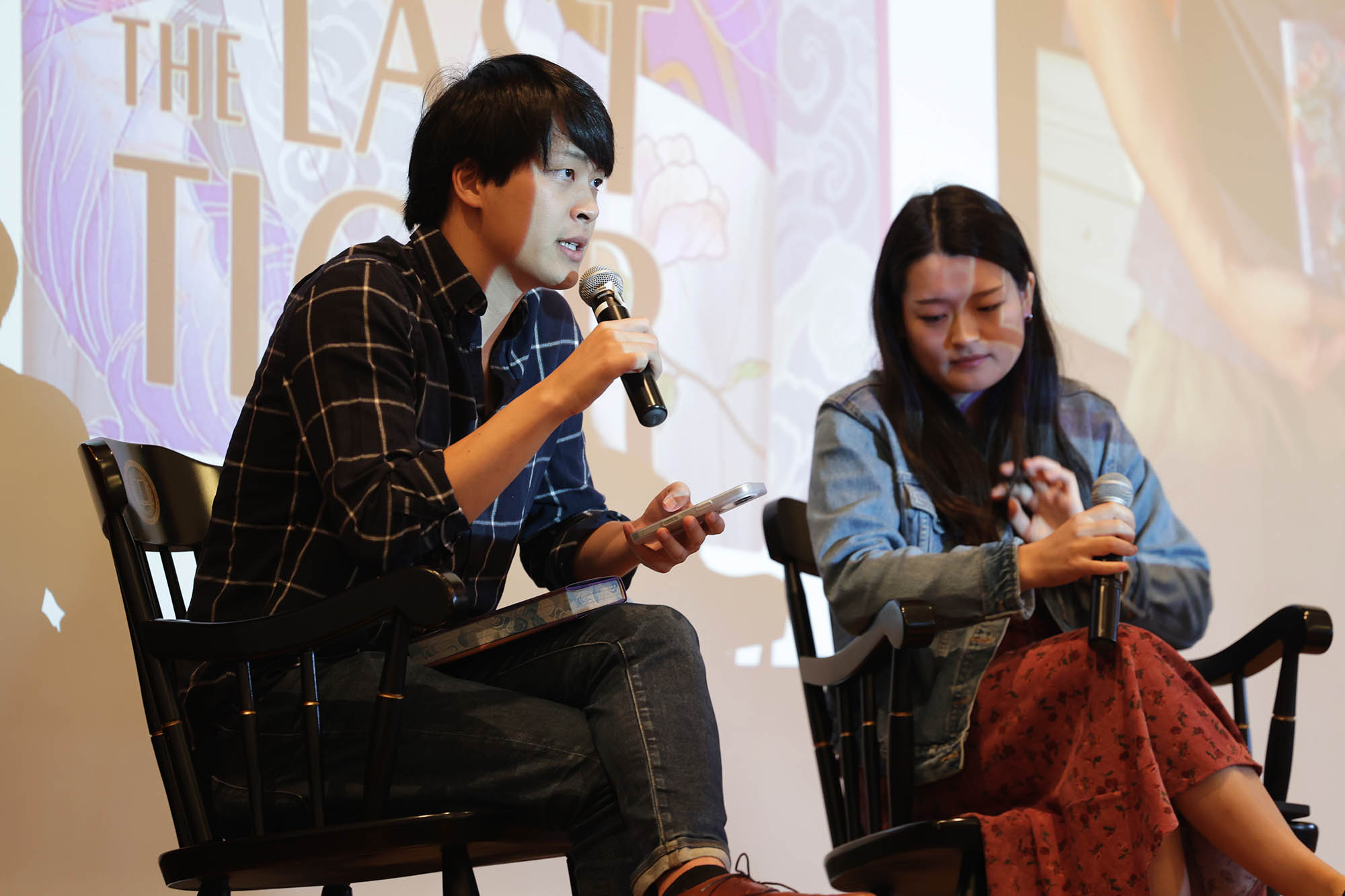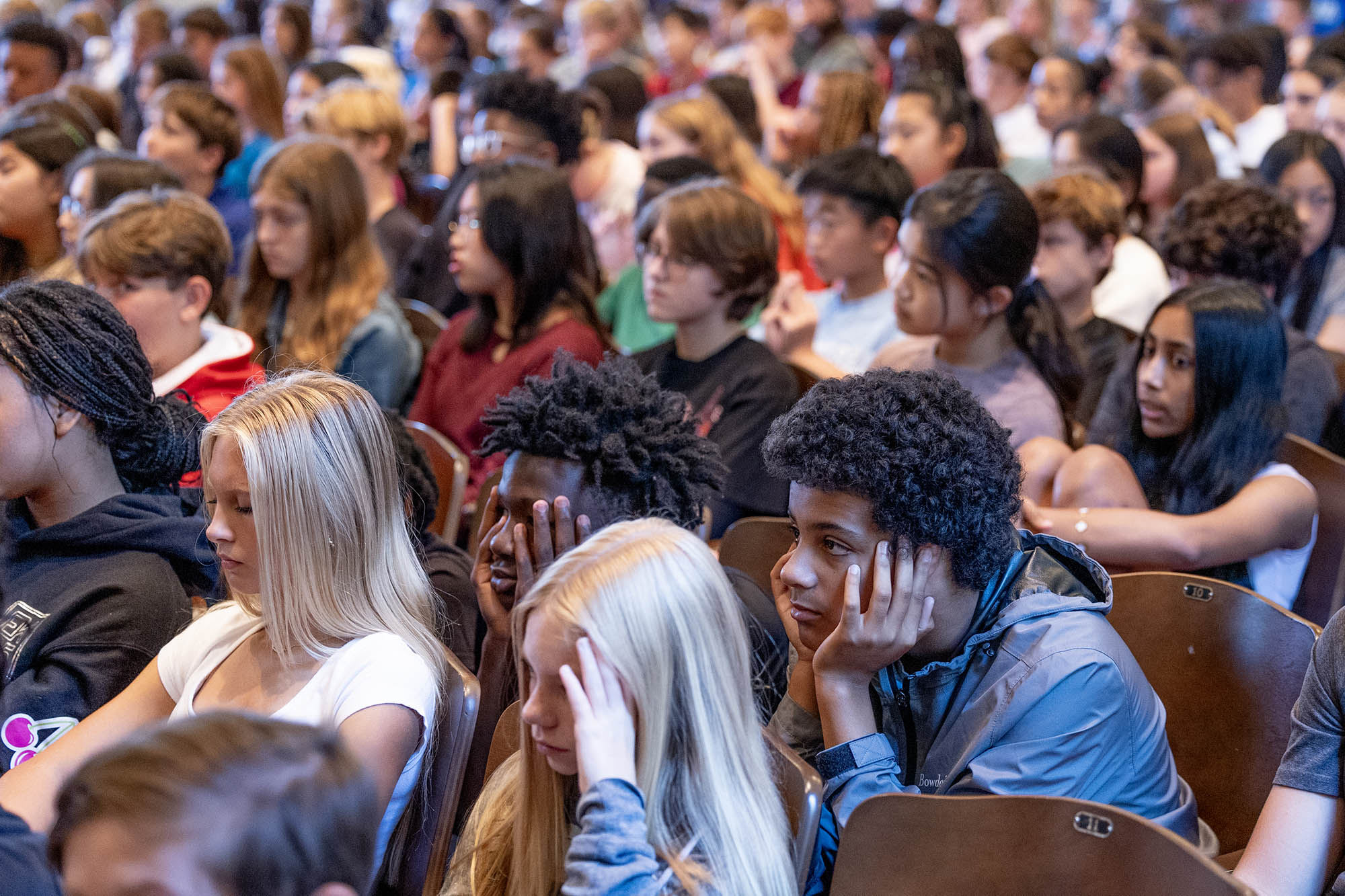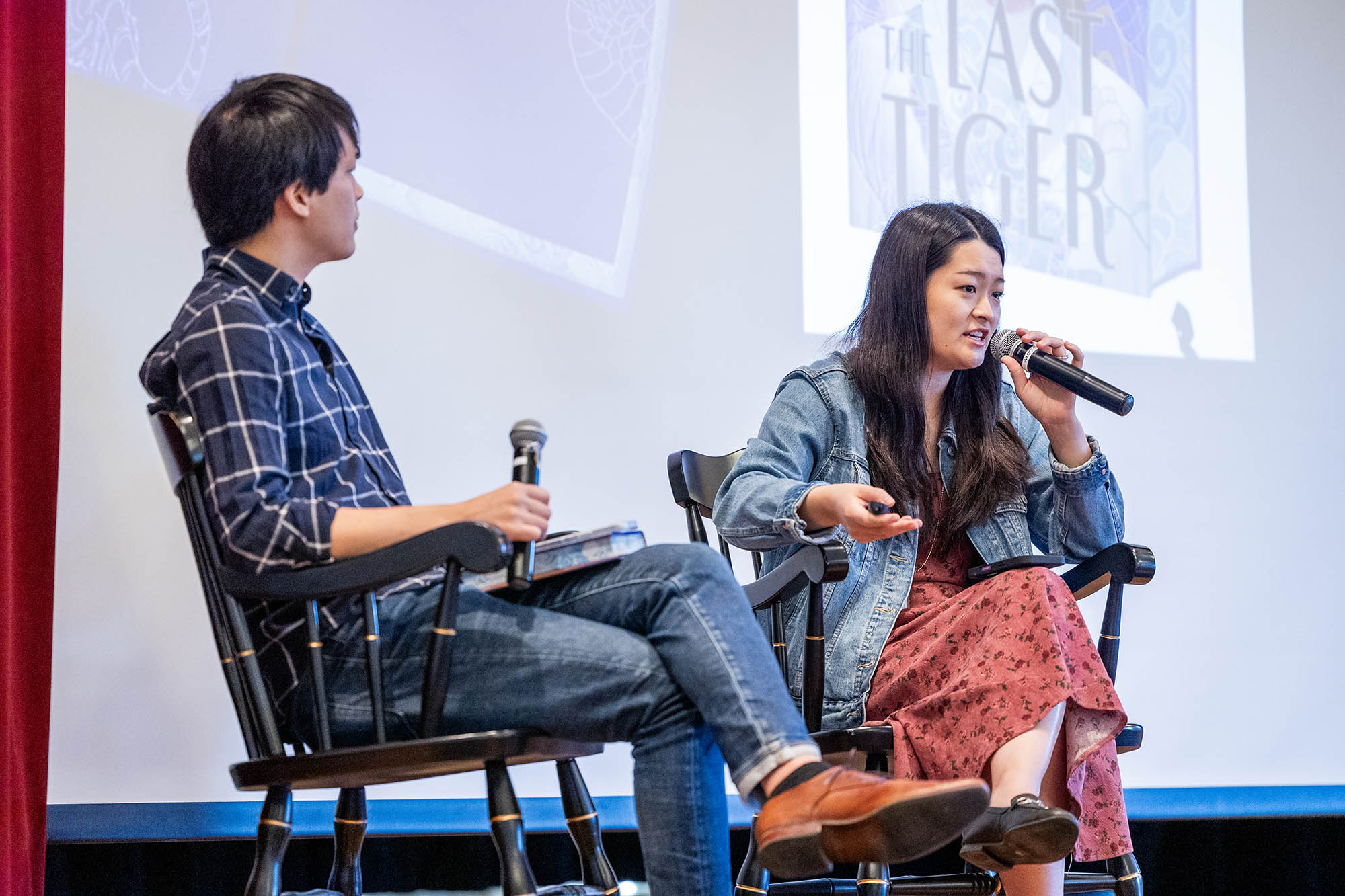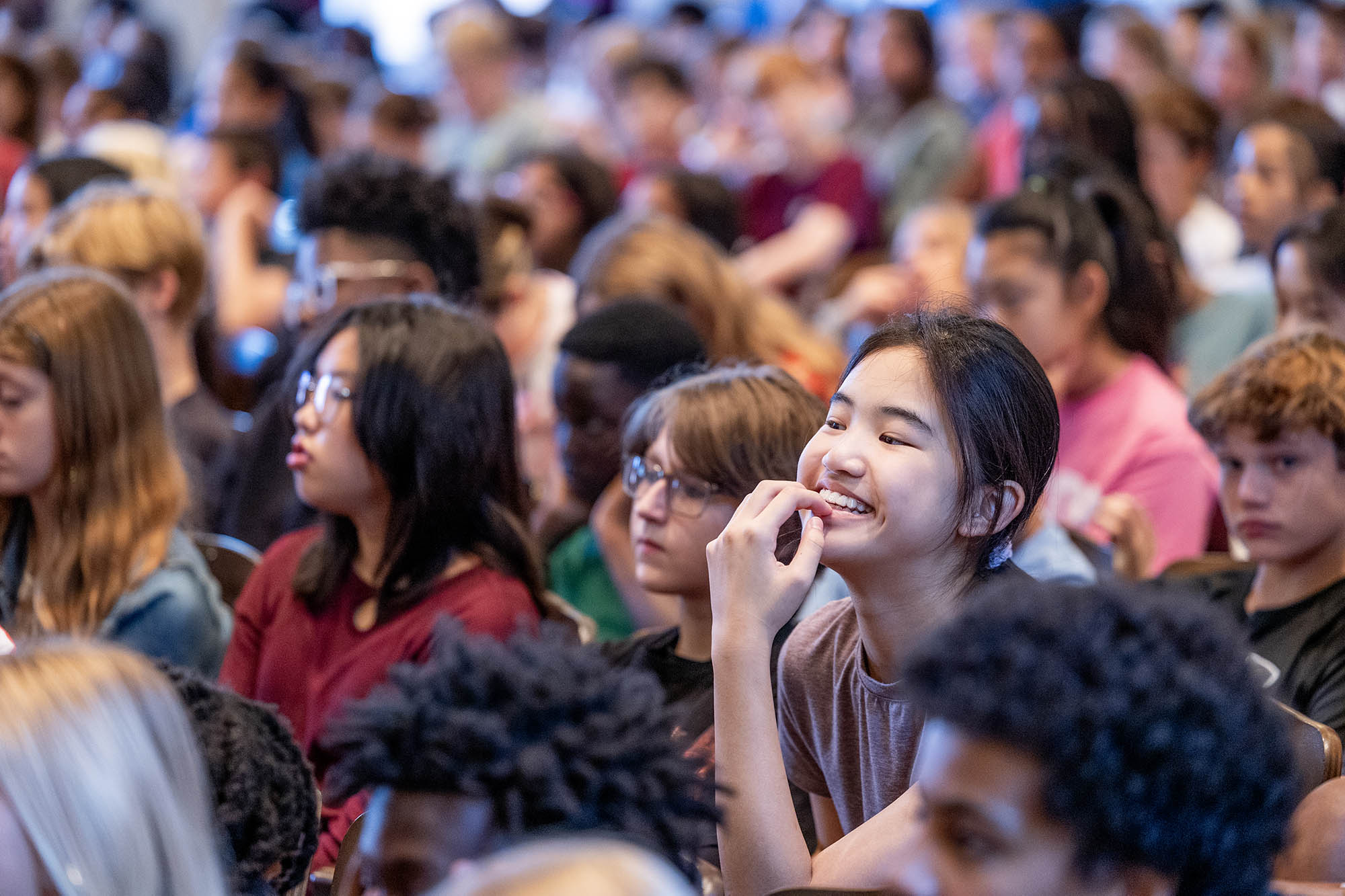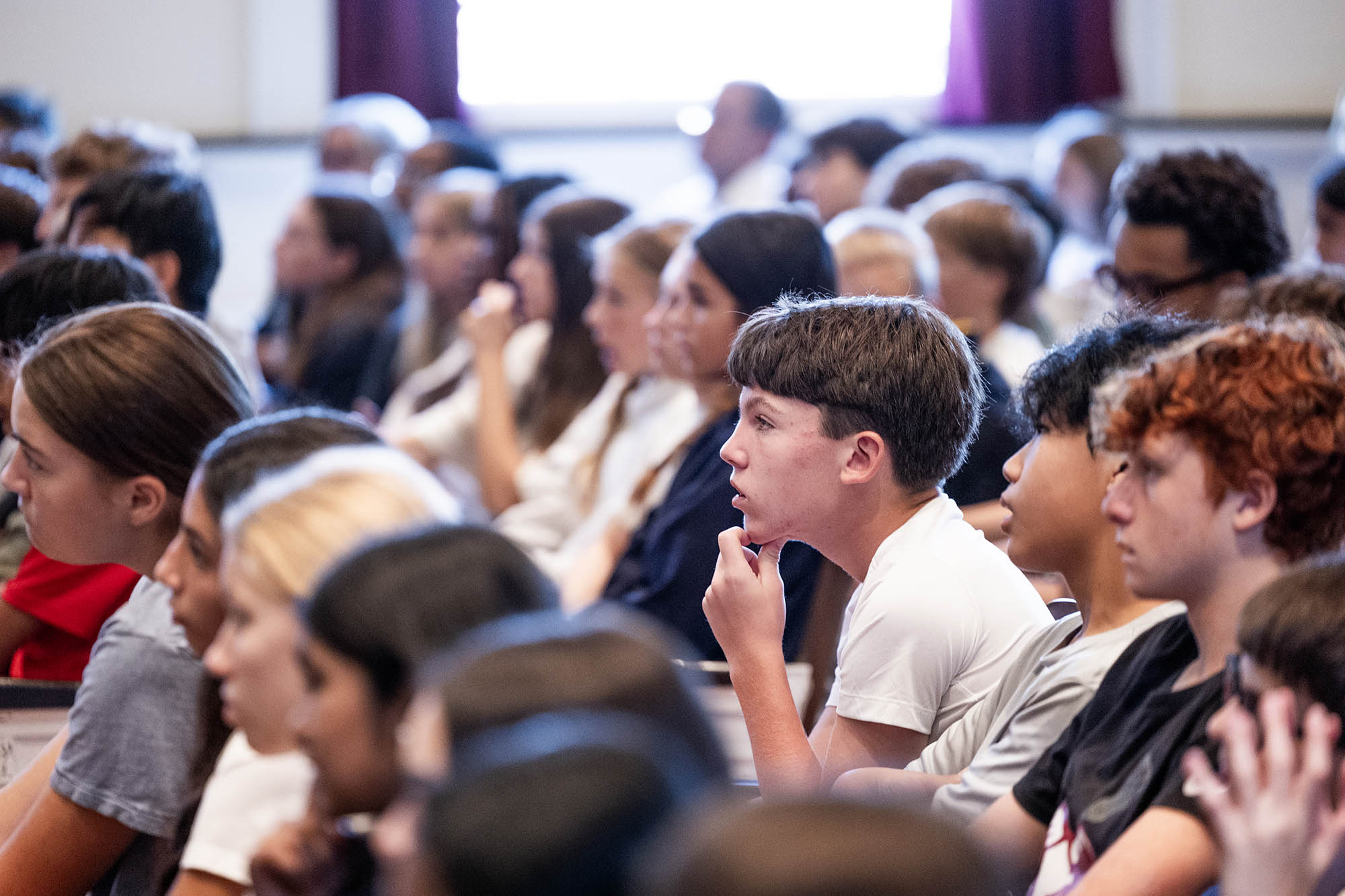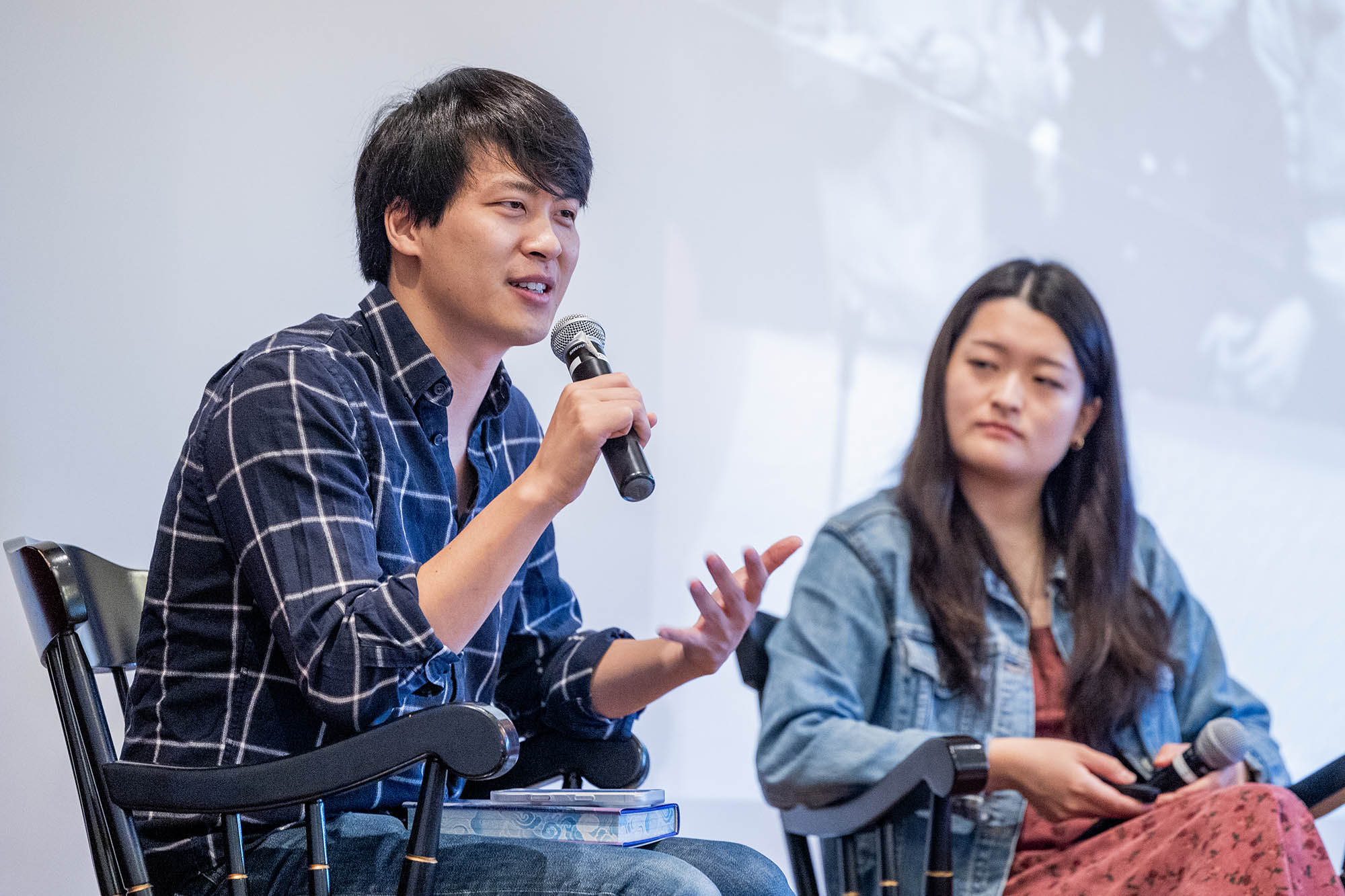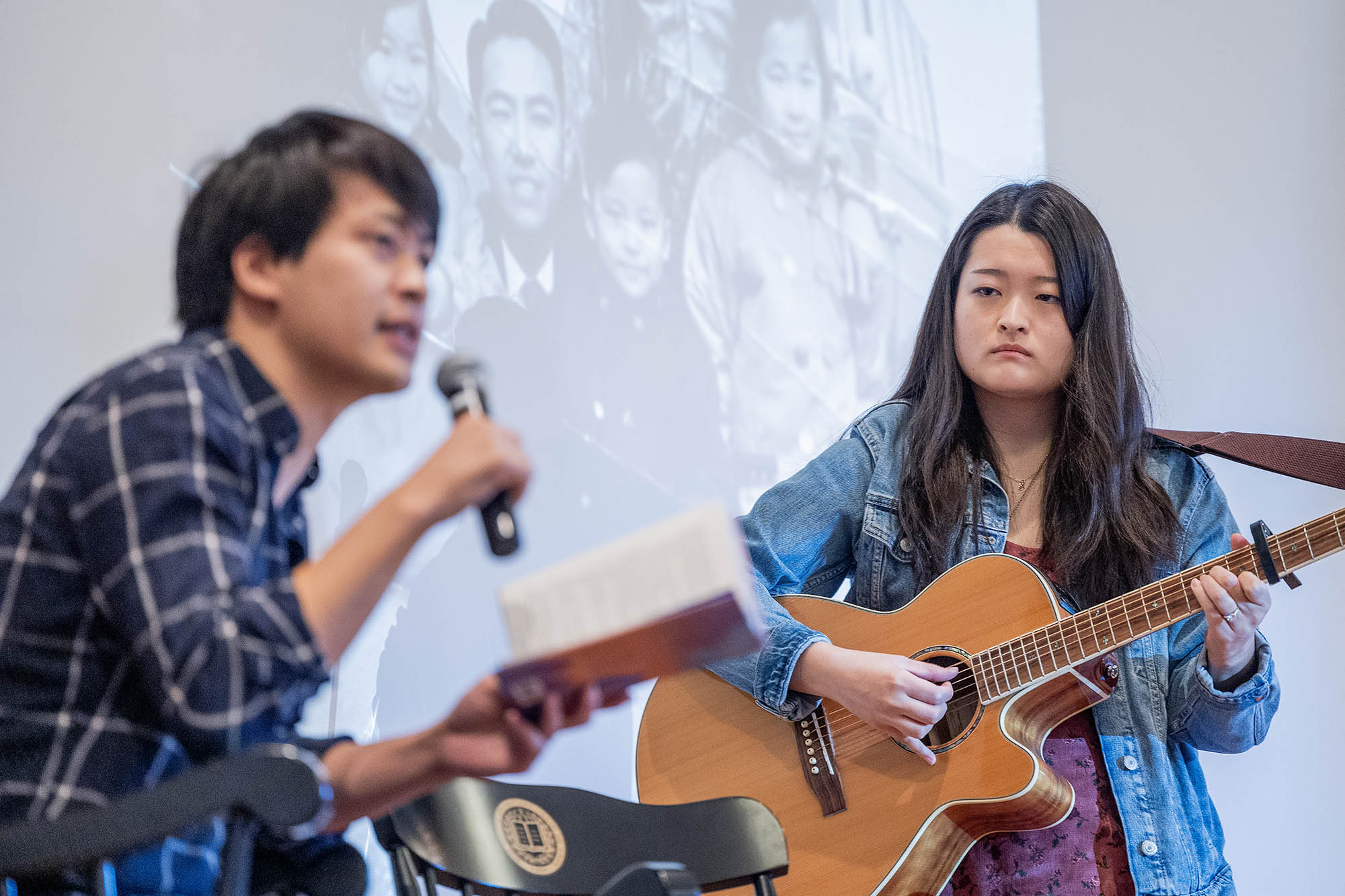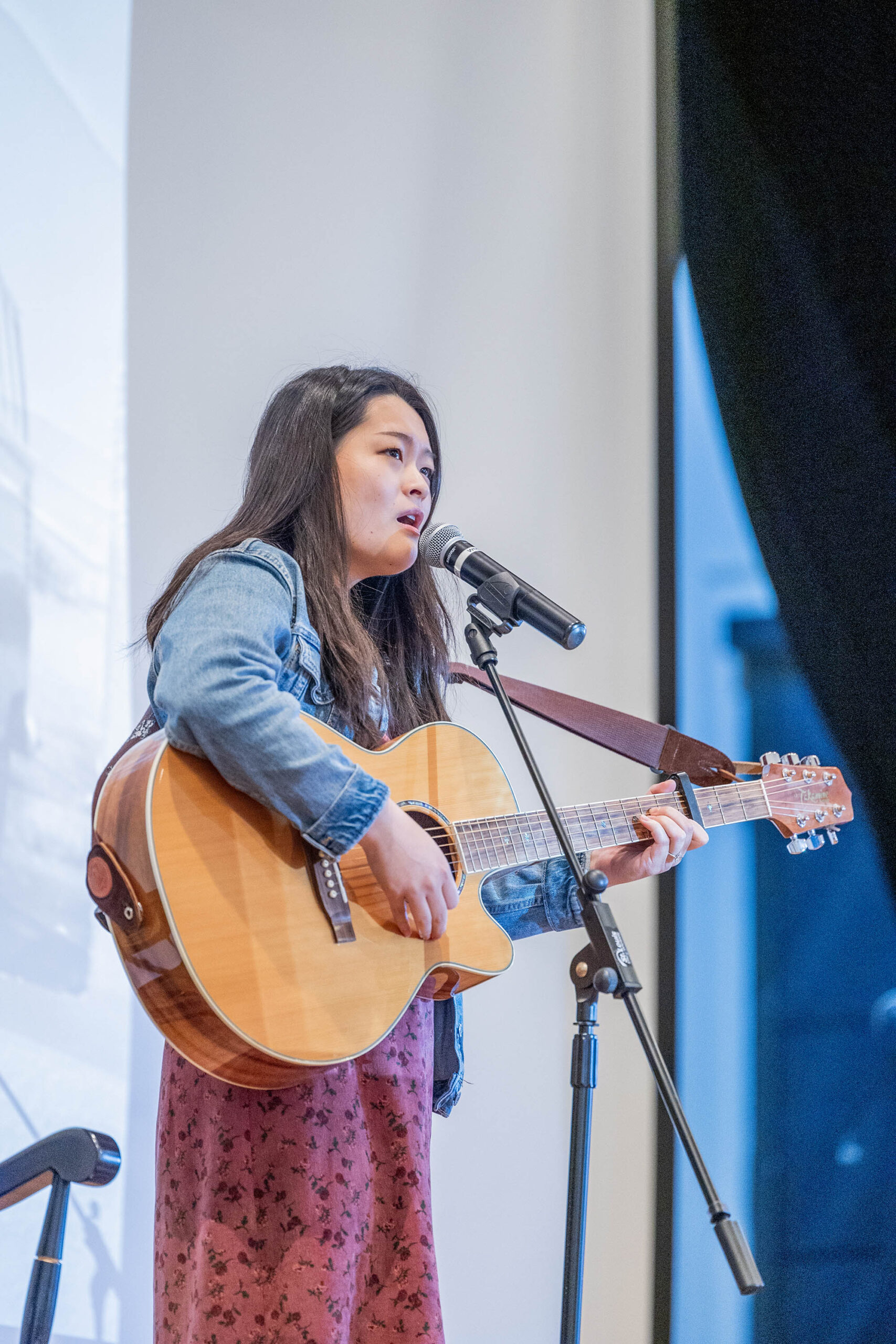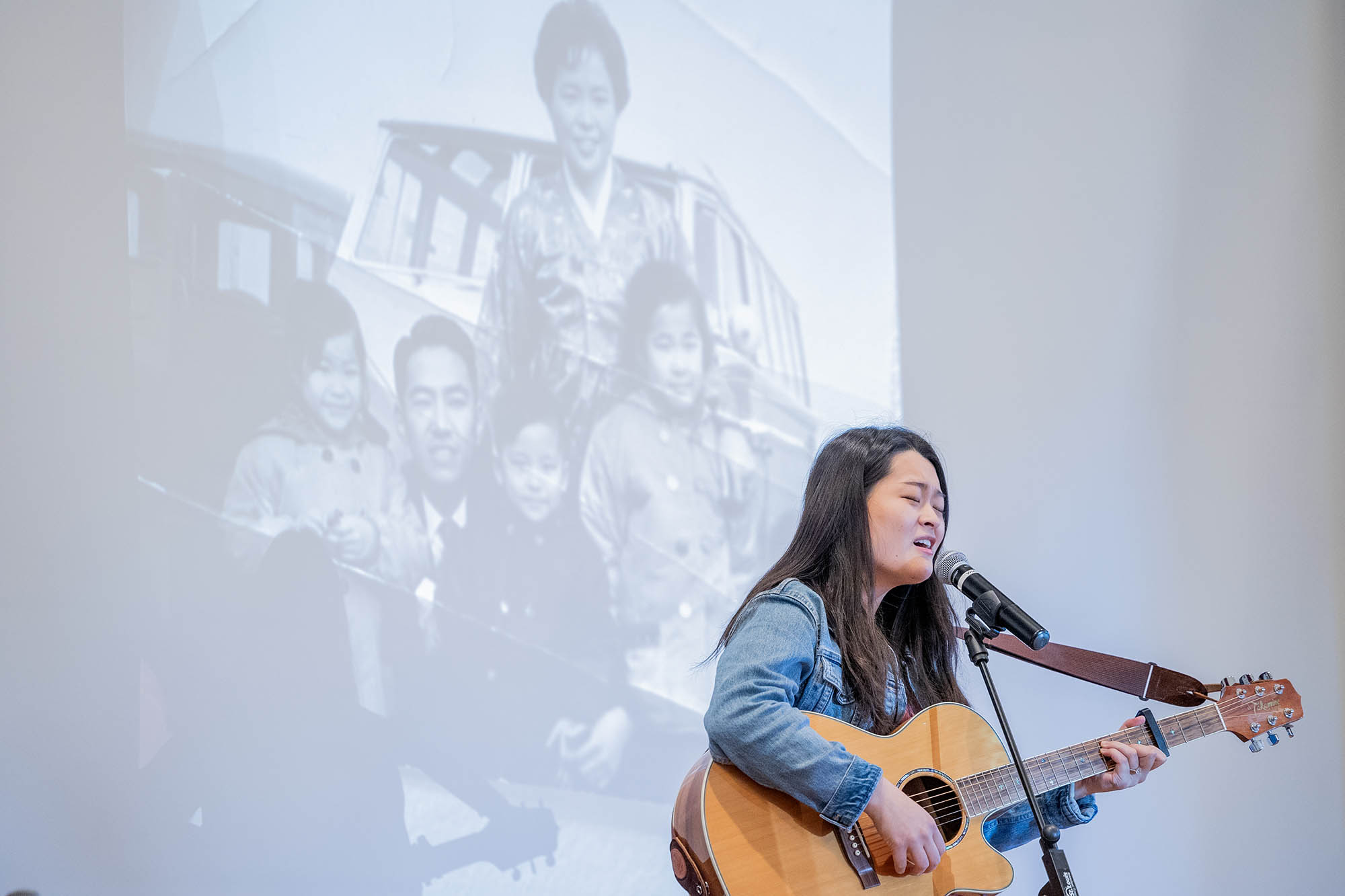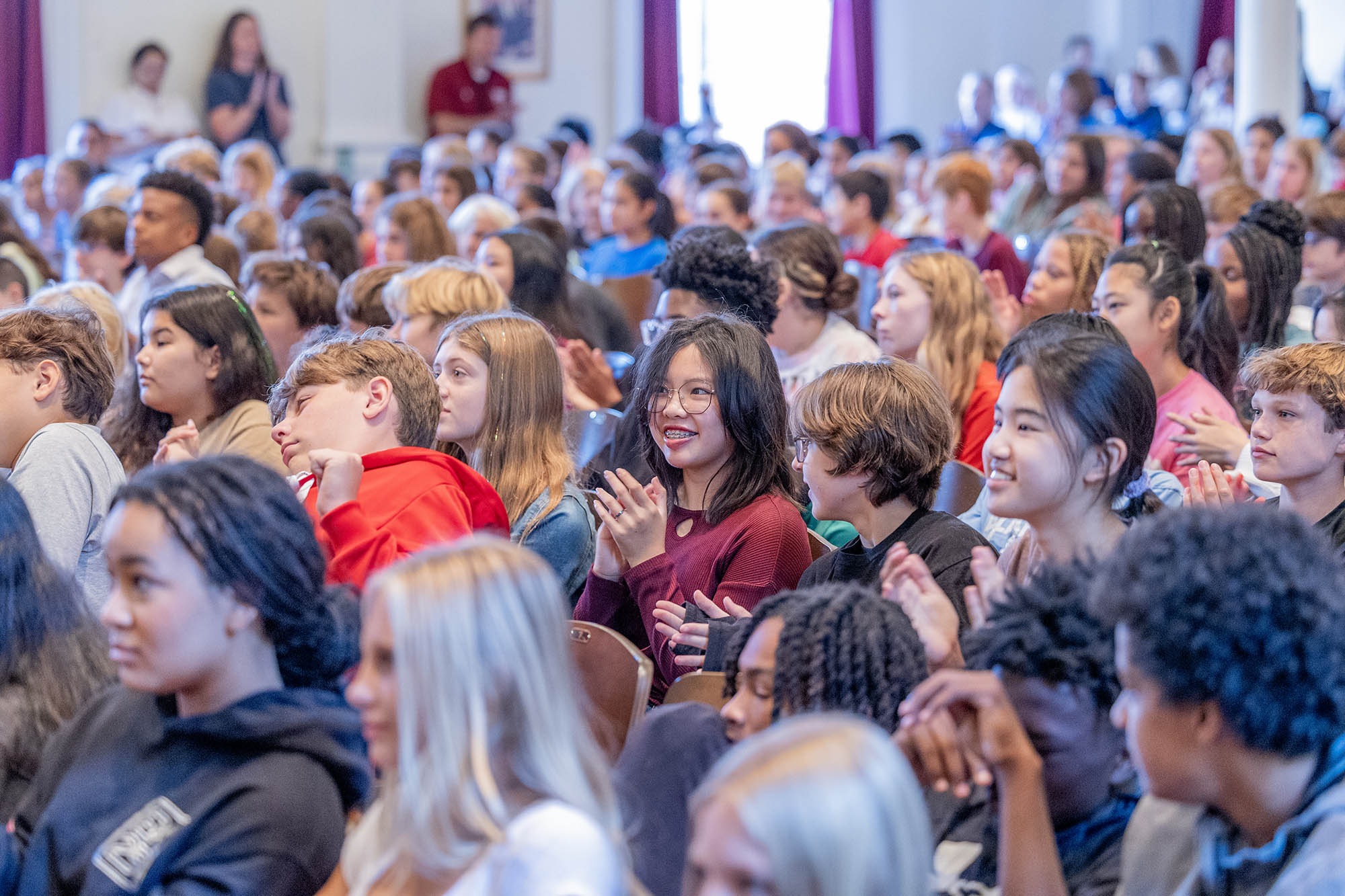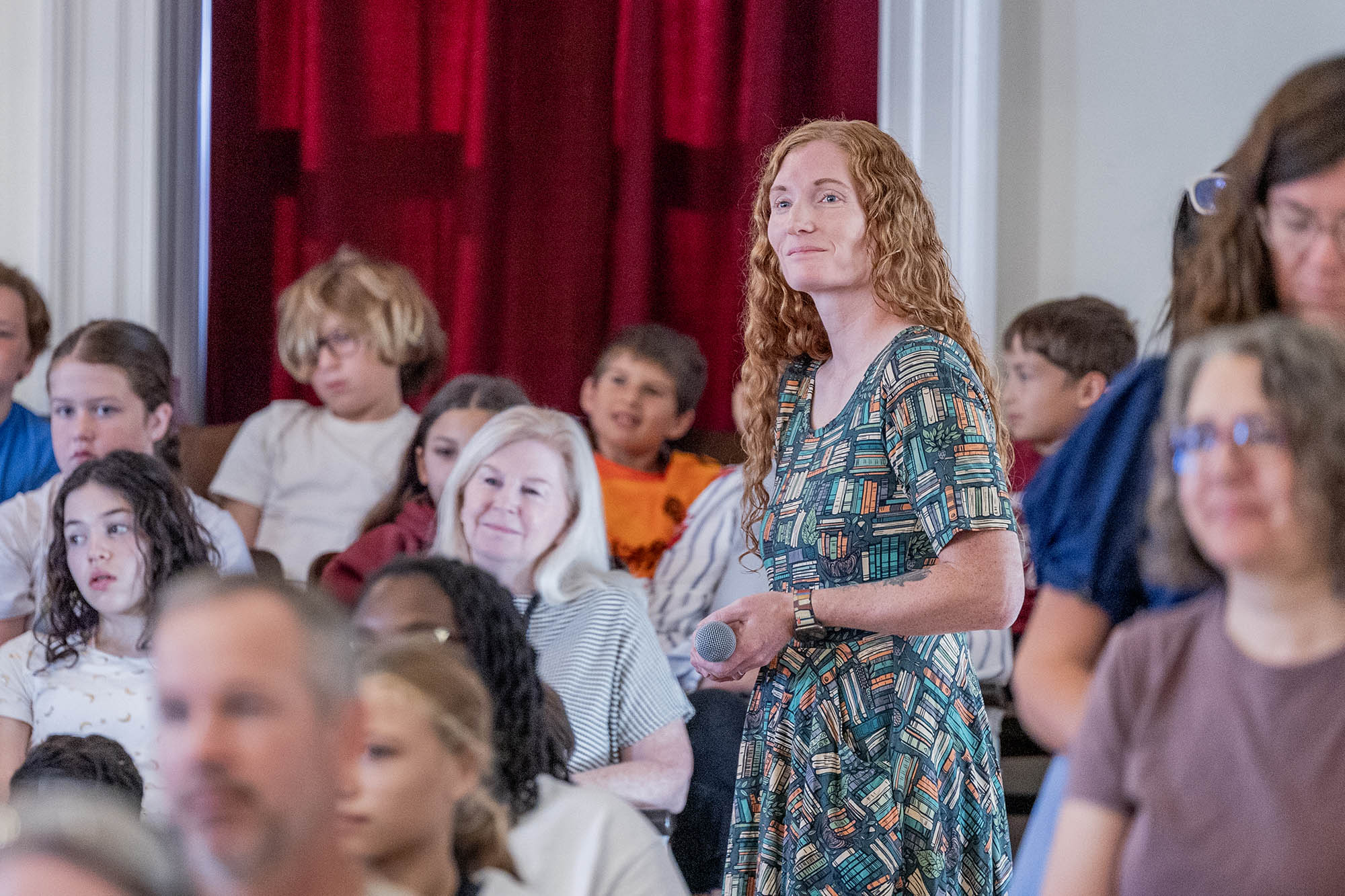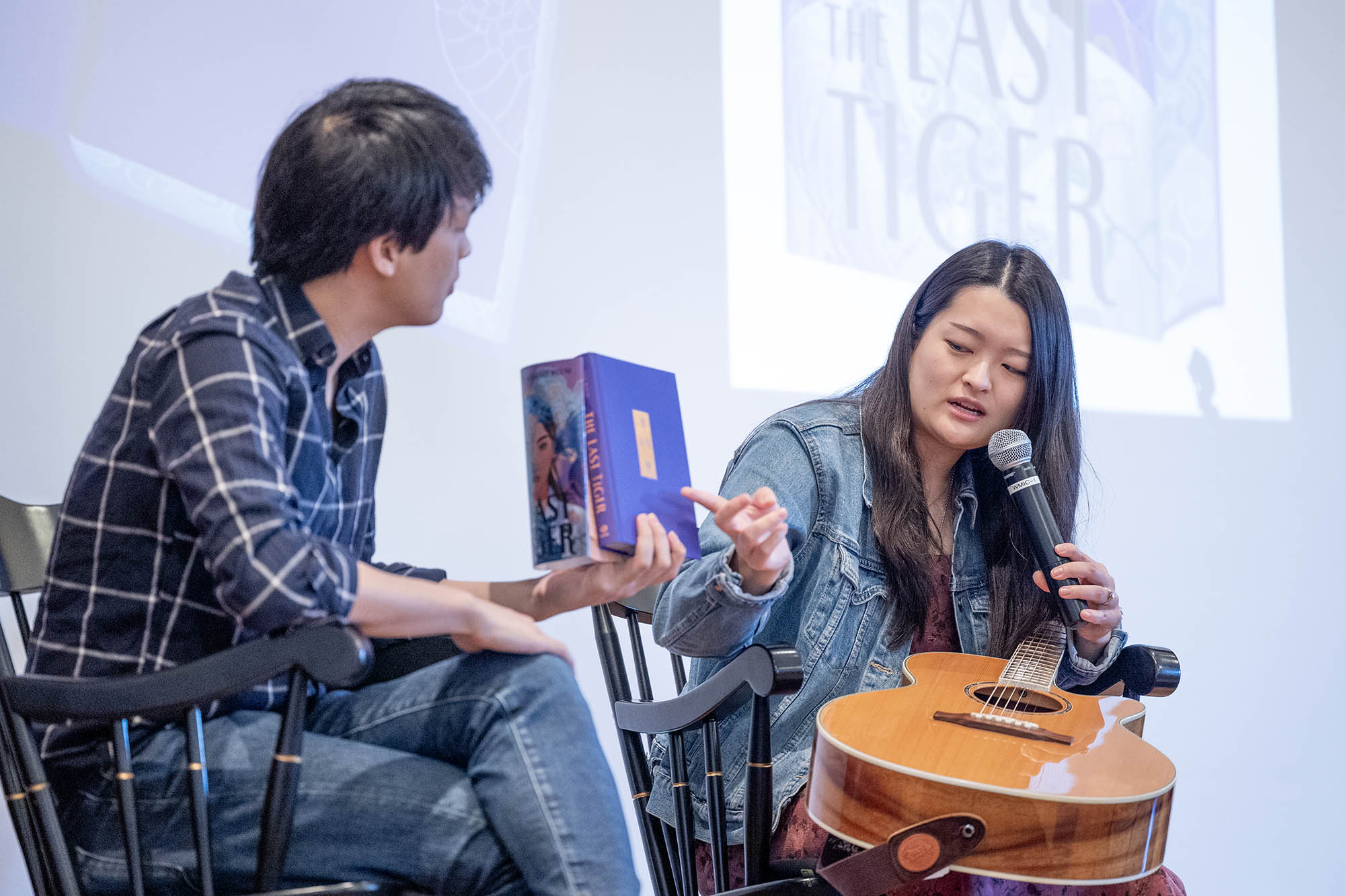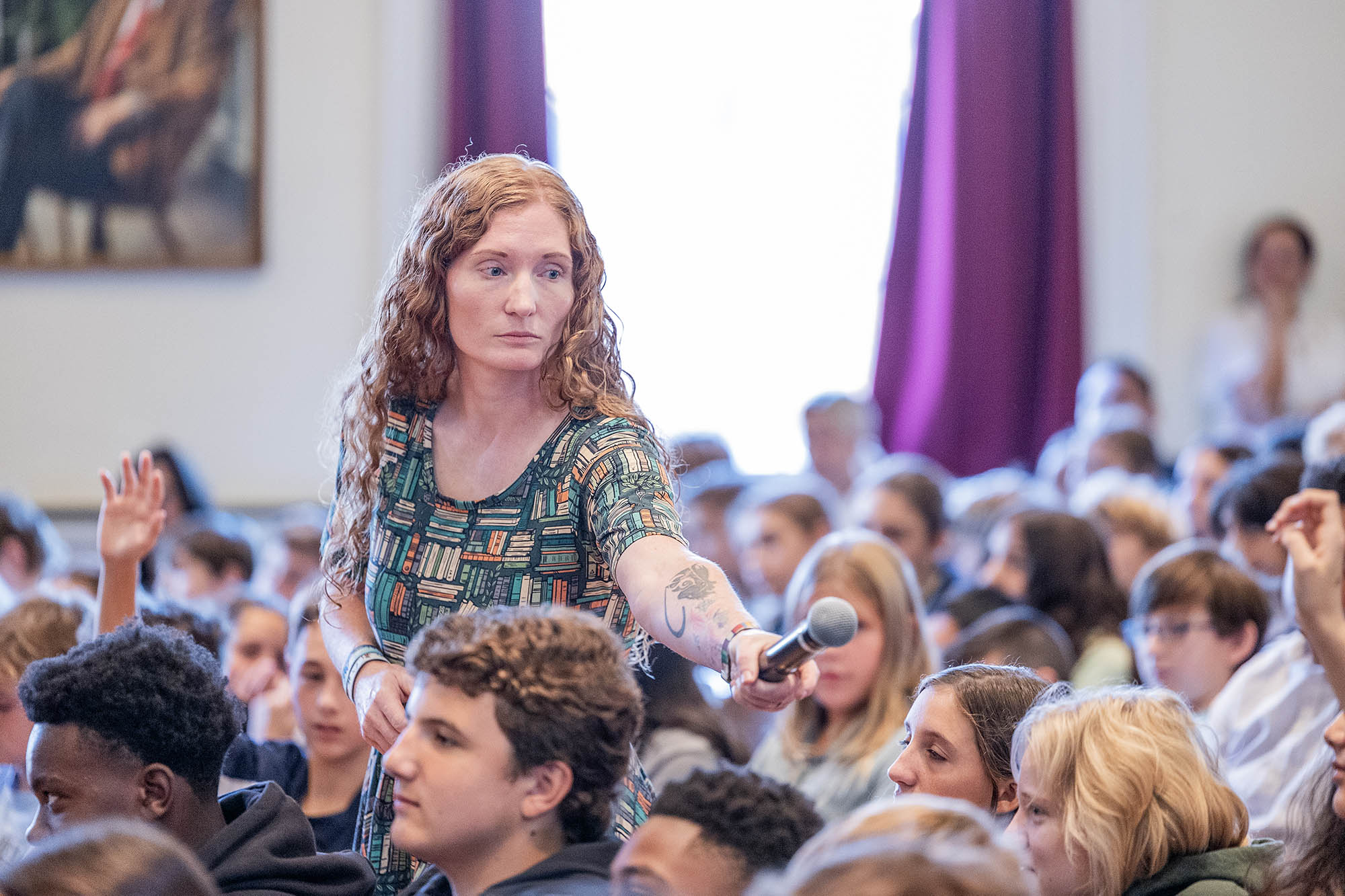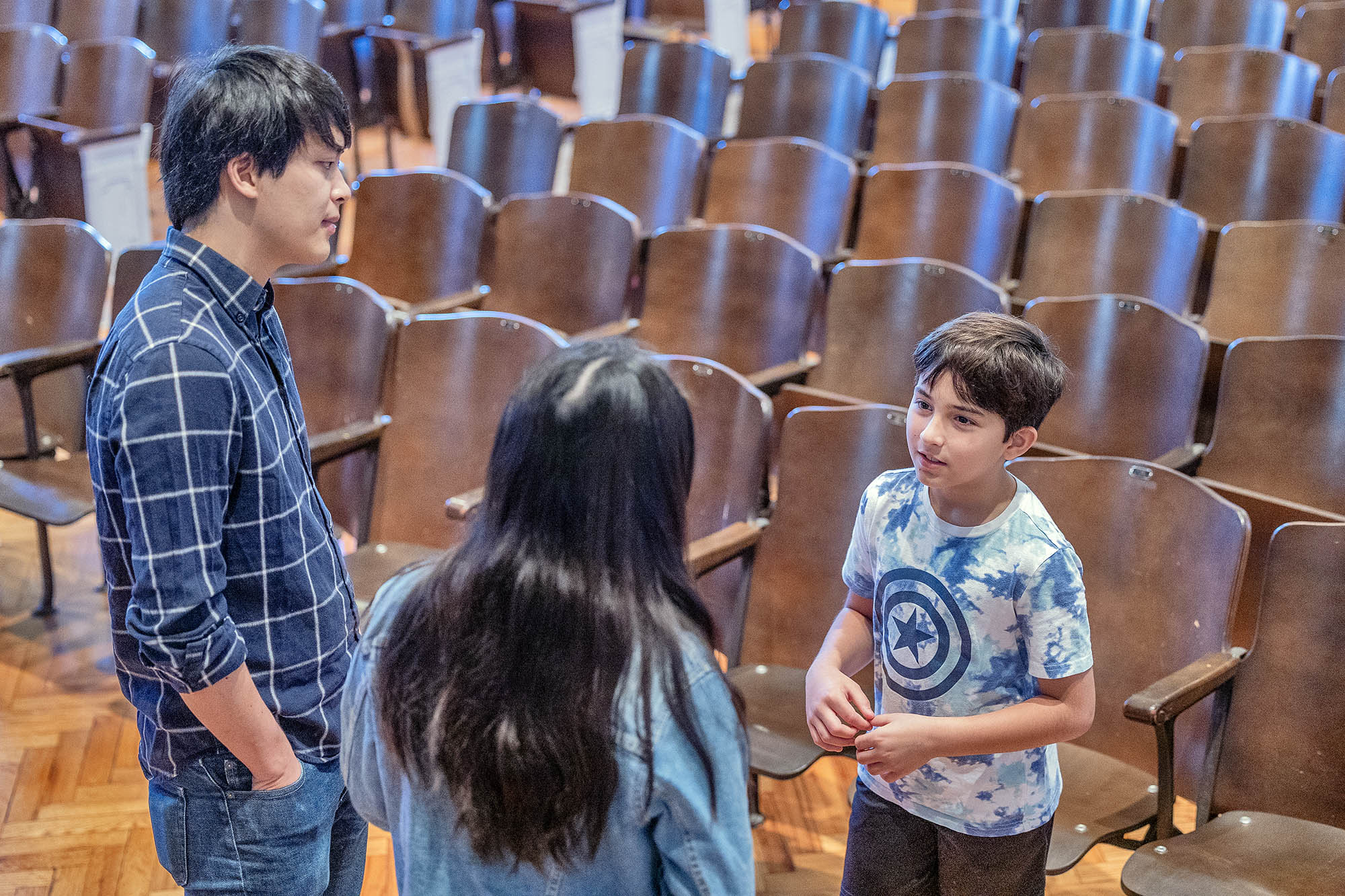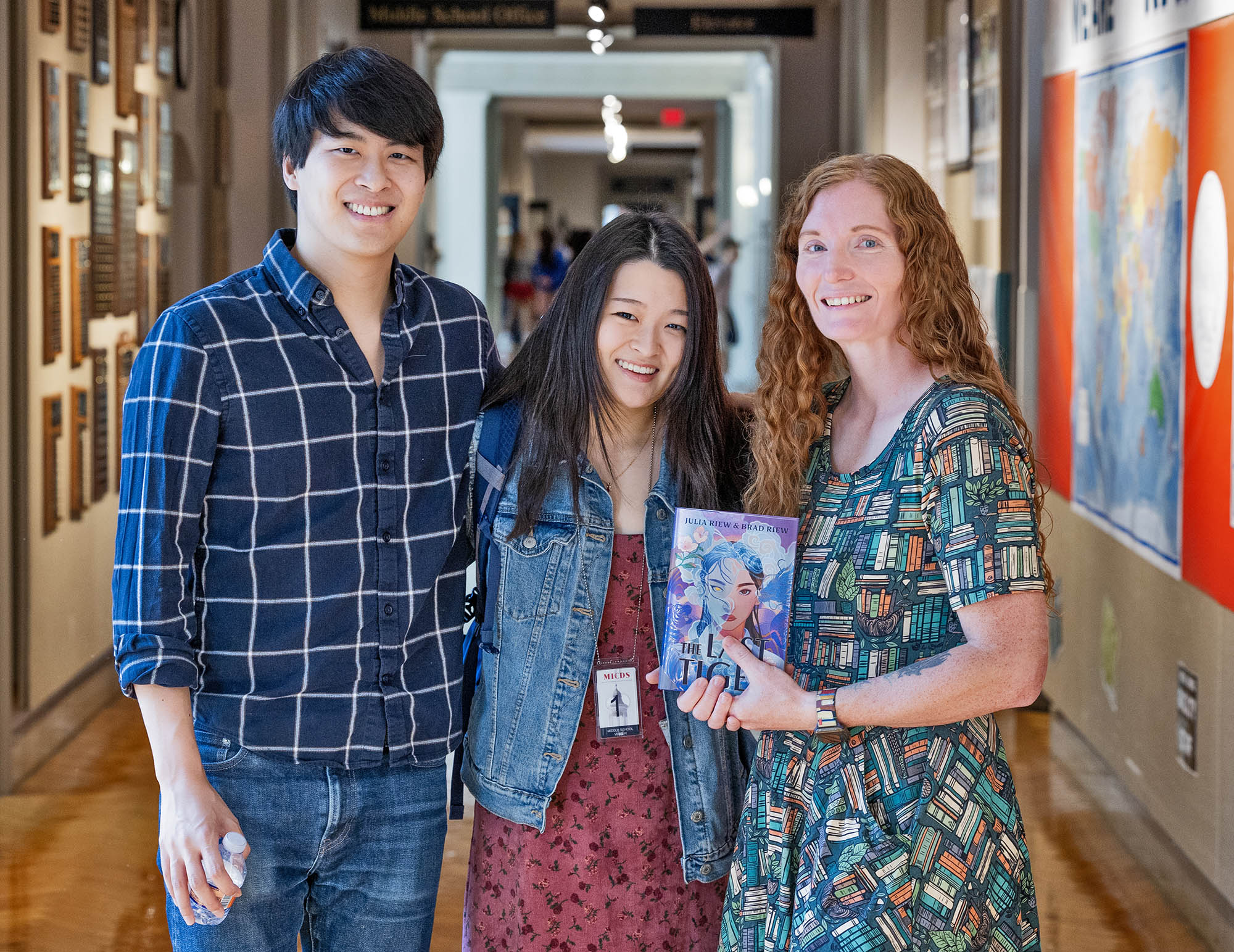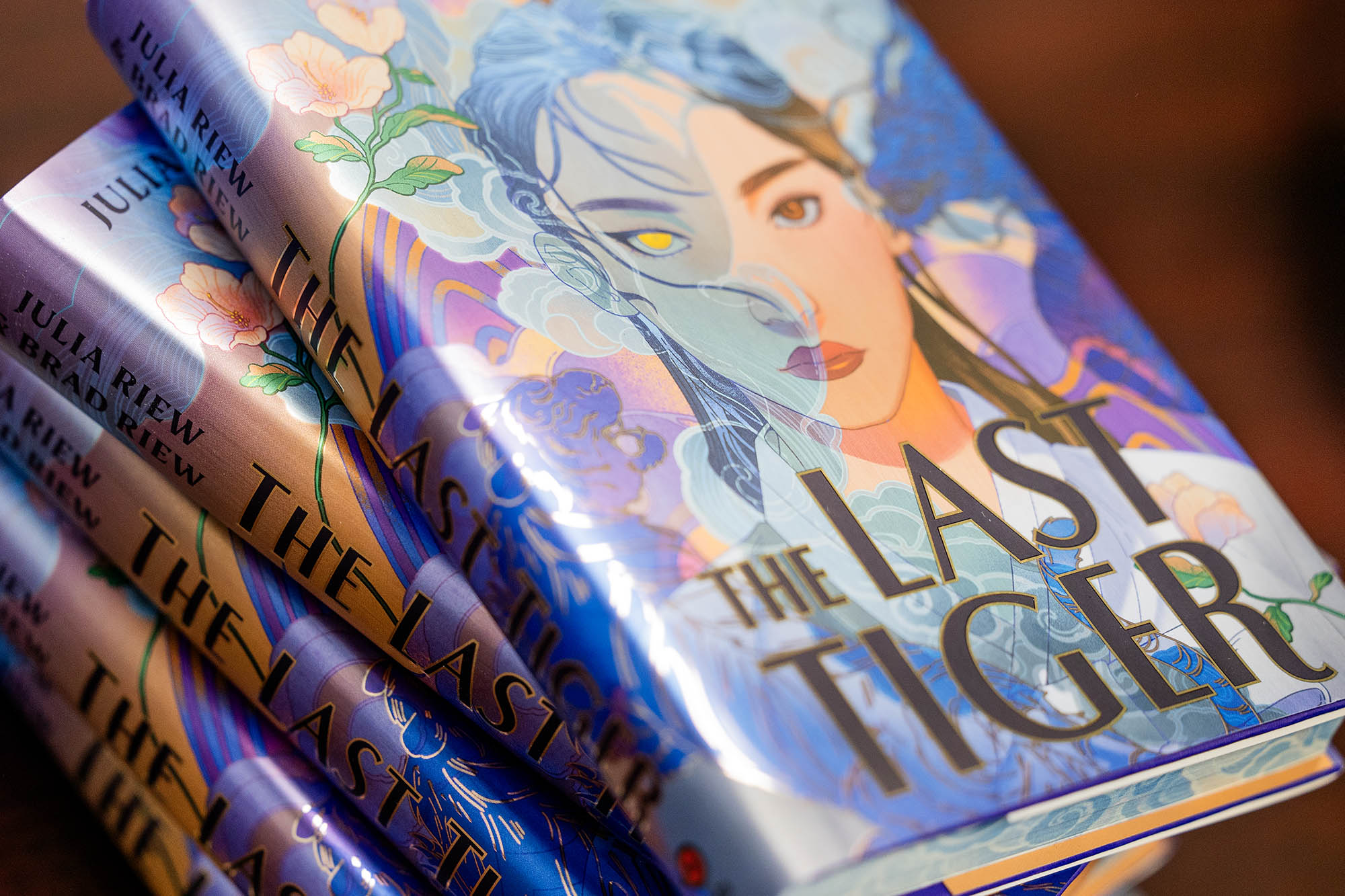Middle School readers gathered in Mary Eliot Chapel this week to hear from the Riew siblings, Brad and Julia, about writing, editing, collaboration, and the book they co-authored. MS Librarian Bethany Kavanaugh introduced them:
“In collaboration with the Very Asian Foundation, today we are excited to welcome not just one, but two very special guests—siblings Julia and Brad Riew! How many of you have a sibling at home? How many of you get along with that sibling very well? Now, I don’t know about you, but I think it’s pretty impressive when brothers and sisters like each other, let alone get along long enough to write a whole book together. In my family, we can barely get through a board game night together.
“Julia grew up right here in St. Louis and went on to study theater and music at Harvard. She’s now a composer, lyricist, and writer who creates musicals and stories that people all over the world enjoy.
“Her brother Brad also graduated from Harvard, where he studied psychology and won awards for his short stories. He’s now working on his master’s degree in creative writing at NYU. The Last Tiger is the very first book Julia and Brad wrote together—proof that siblings really can make a great team!
“We’re so glad they’re here today to share their journey as writers, siblings, and creative partners. It’s a historical fiction fantasy with a dash of romance and Korean folklore woven in, for all my KPop Demon Hunter fans. Please join me in giving a warm MICDS Middle School welcome to Julia and Brad Riew!”
Julia began by reminiscing that she was last in the Chapel rehearsing for the Arch City Theatre Troupe, 10 years ago. She said the siblings were excited to be visiting MICDS, and to be back in their hometown of St. Louis.
She shared that she has been working in musical theater since 2022, and actually started writing music when she was seven years old, which is when she also began writing stories. “Brad and I have been collaborating as long as I can remember,” she said. “He’s older by four and a half years.” Brad explained that he struggles with chronic fatigue syndrome, which affects the nervous system and means he doesn’t have much energy. “Writing with an illness is an extraordinary challenge,” he shared. “Our book is themed around diversity and the challenges we face in our lives and around the world, and how we find the strength inside ourselves to overcome them.”
The duo learned true stories about their grandparents’ lives in Japanese-occupied Korea in the 1940s, which included a forbidden love affair and a fight for freedom.
Julia played the guitar and sang a song she had written about her grandparents, filling the Chapel with sound. Their grandmother came from a prominent family in Korea, while their grandfather came from a family where, as a teenager, he was the sole breadwinner. His father had run a tailor business, crafting clothes in a Western style. When the Japanese invaded, they decreed that only Japanese-style clothing could be worn. The shop closed, and soon after, its owner suffered a heart attack and died. The Riews’ grandfather, at the age of 19, became the head of the household and was responsible for providing for his mother and siblings.
The couple, then teenagers, met in church, which was considered taboo in Korean society. They formed an instant connection and began meeting for walks in local parks and cemeteries after dark. Eventually, a church elder mentioned to the girl’s parents that they seemed to like each other. A conversation between the girl and her parents ensued:
“Are you dating?”
“Yes. We’re in love.”
“Love doesn’t put food on the table.”
Their grandmother’s parents had arranged a marriage to a boy from another prominent family. She resisted and joined their grandfather for walks in local parks and graveyards after dark. During the day, they acted like they didn’t know each other. Eventually, her parents found out and they placed her under “house arrest” for three months, hoping to quash the relationship. The pair figured out how to communicate, passing notes to each other through their siblings. “Even when things tried to tear them apart, they managed to stick together,” Julia said. They eventually married and, in the 1960s, moved to the United States and raised a family.
Her song and the book she co-wrote with Brad are inspired by that story.
While Julia played, and in between the lyrics, Brad read quotes from their grandparents, which are included in their book.
Brad then shared more about the colonial rule of the Japanese over the Korean people, which was ruthless and devastating. “We were harassed,” he quoted from the book. “Our pasters and leaders were sometimes jailed without any reason.”
“Against all odds, you’re by my side…” sang Julia. The auditorium was quiet, and broke out in thunderous applause when they finished.
Brad explained that in 2020, their grandfather passed away. It was early in the covid pandemic, and the virus was quickly passing through nursing homes in New York. “He was 91,” Brad explained. “He lived a long life, full of adversity and challenges, but with extraordinary perseverance.”
After their grandfather had passed, their grandmother wrote 50 pages of a full recounting of their lives together. Julia was intrigued and began searching through her email for messages from her grandfather. She discovered a treasure: a forgotten interview she had done with him for a high school project. She had 20 pages in his voice, recounting their story.
“We grew up listening to our grandparents’ stories, but it’s another thing to read 50 pages after our grandfather passed,” they said. “It’s really emotional.”
The siblings shared more about the Japanese occupation of Korea. In the 1940s, when their grandparents lived there, Korea was a poor country and in turmoil. Japanese policy tried to eradicate the Korean culture. The Korean language, along with songs and books, were banned. The Japanese would often change the law arbitrarily, which had a profoundly negative impact on the lives of Koreans.
The Korean people found secret ways to rebel against the Japanese Empire. They continued singing folk songs in private, and their grandfather joined a secret student rebellion group against the empire.
“No matter how difficult things got or how bleak it seemed, the Korean people never gave up, never gave in, even when the Japanese were trying to drive their culture out of existence,” they said. “The Korean people were forced to use Japanese names, so they picked ones that sounded like their Korean names. Whenever anyone tries to crush the human spirit, the spirit fights back.”
They explained that the tiger had long been a national symbol for the people of Korea. In a show of force, the Japanese occupiers hunted and killed all the tigers. They unfortunately succeeded, driving the tigers to extinction. There are no tigers in Korea today because of this policy.
“The Last Tiger is a fantasy reimagining of this period, and what our grandparents went through,” they said. “In the book, tigers are magical spirits and feel emotions and hold memories. They’re fighting oppression.”
The Riews then shared the story of how they came to write the book. In the spring of 2021, Brad was home and sick. It was the thick of the pandemic, and Julia was taking a gap year in college. “I had been reading fantasy and science fiction because I had a lot of spare time,” she said. One day, she asked Brad, “What do you think of turning their love story into a young adult fantasy novel?” He agreed, and by that evening, the pair had determined a story structure and brainstormed the names of their main characters.
“Adding magic makes the story alive for people, makes it interesting, tells deeper emotional truths, and brings history to life,” they said. “Anyone who comes from a multicultural family knows that there’s something really magical about the ability to create a fictional world that is resonant with our grandparents’ history and yet relevant to today’s world.”
The Last Tiger has two characters who team up to change their fates, and what unfolds from that partnership. The Riews wanted it to be entertaining, of course, and used both real-life events that were interesting and situations they dramatized for pacing and intrigue.
“Writing with a chronic illness is one of the hardest things I’ve ever done,” said Brad. “I have days with no energy. I write a few paragraphs and then take the rest of the day off, and maybe the next day. Partnering with Julia was incredible. Sometimes I’d ask her to take down what I dictated.”
Julia graduated from college in 2022 and shared an apartment with Brad in Brooklyn while they finished the book. The process was intensely collaborative, with both working on passages separately and together, trading back and forth. Julia would often read aloud to Brad, and they would edit on the fly. “It was like when we were kids,” Julia reflected fondly.
The siblings explained that they went through three major overhauls of the book, securing a literary agent to help them sell the project. They met with five publishing houses that expressed interest. After a small bidding war, they sold the book to Penguin Random House. Then they began the process of copy edits, rewrites, and meeting with marketing, editors, and the design team. Through this process, Julia made TikTok videos and Instagram reels to promote the story. It was released last July and debuted at #5 on the New York Times bestseller list.
“People can feel confused or lost about the world today, and struggle to find their own relationships,” said Julia. “For us to be able to look back at the people who came before us and understand their experiences tells us we are not alone; whatever we experience has its own line in history. We have family members who lived through extraordinary things and came through. Old people may seem boring; you may think they’ve forgotten what it’s like to be young, but if you take the time to listen to them, they’ve been through a lot. They have a lot of experience, and they can often be more relevant today than we give them credit for.”
The pair had good advice for these young readers: “Ask your parents, grandparents, relatives, and the older people you know, what their stories are, what they have experienced. We all came from somewhere. All our ancestors have faced challenges and world-shaking events, and they came through them. In the case of our grandparents, love got them through. Love can carry us through.”
Julia and Brad ended their presentation with another performance, a beautiful Korean folk song that had been banned during the occupation. The students listened raptly, and once again the Chapel erupted in applause when they were finished.
The last 10 minutes with the Riews were open for students to ask questions, and they asked great ones. The siblings shared information about the cover art, both on the book jacket and on the hardcover. Julia shared that they didn’t grow up speaking Korean as they are third-generation Korean Americans, but she learned to speak Korean in college and can carry on a conversation. She spoke about making up songs for as long as she can remember, starting violin lessons when she was four. She wrote her first classical composition when she was about seven, and when she was 12, her orchestra teacher asked her to flesh out a small composition for the whole orchestra that was then played at their next concert. Her other brother (not Brad) got a guitar and a ukulele, and she stole them both and learned to play.
They shared information about the magic in their book, that there’s a concept in Korean culture about a superpower that translates to social EQ, or the ability to read a room or understand other people’s emotions and know what to say or do in response. “The strength of the Korean people comes from the power to pass down stories to share with a sense of resilience and to share emotion. Think about the world today: how oppression works and how understanding works. Empathy is the power that cuts across lines of power and powerlessness, forging people together, and can help free us from these kinds of injustices.”
One student wanted to know, “Did you get along when you were kids?” “Yes, I think because there was a big age gap,” said Julia.
Another asked which part of Korea their grandparents are from. Their grandfather was born in what is now South Korea. Their grandmother was from what is now North Korea. She was a college student in Seoul when the Korean War began and decided to stay to finish her studies, not realizing that she would never get to go home again.
Is there Korean language in the book? Yes, the hardback cover under the dust jacket has a gold inset with three Korean words that the three parts in the book are named for. These words are uniquely associated with Korean culture, and no translation exists in other languages. One means a fond relationship that forms between two people. Another is han, has very deep meaning in Korean culture: a collective anguish the people feel over the tumultuous history they’ve experienced.
How old were the siblings when they began working on the book? Julia was 22 and Brad was 26, and now Julia is 26 and Brad is 30.
Will they write another book? They’re working on their next book right now, a science fiction comedy novel. “Stay tuned!” said Julia
Many thanks to the talented Riew siblings for visiting MICDS to share their story, and the remarkable story of their grandparents. We’re sure The Last Tiger is now a favorite check-out in the Messing Middle School Library.
